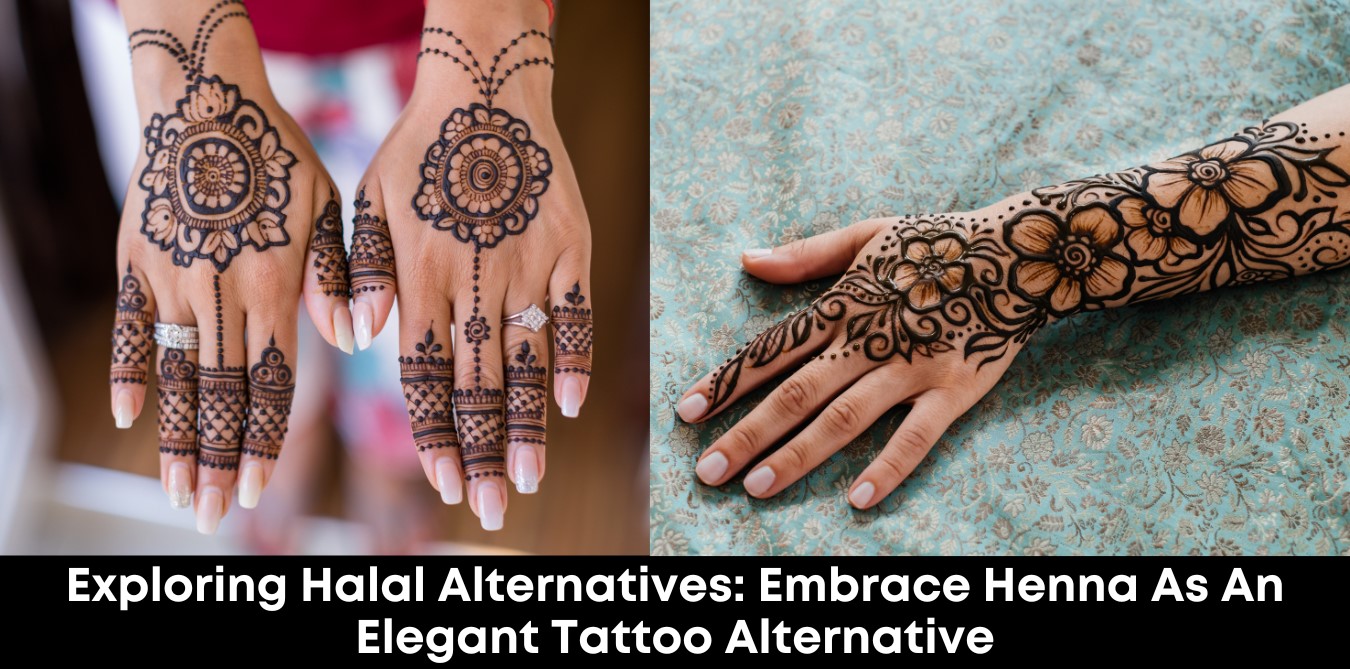
Exploring Halal Alternatives: Embrace Henna as an Elegant Tattoo Alternative
Embrace Tradition and Beauty with Henna Artistry
For individuals seeking artistic expression without compromising their religious beliefs, henna emerges as a captivating alternative to tattoos. Originating from ancient traditions and deeply rooted in Islamic culture, henna offers a temporary yet exquisite form of body art. Here’s why henna is gaining popularity as the preferred choice among Muslims and non-Muslims alike:
1. Cultural Significance
Henna holds profound cultural significance in Islamic traditions, symbolizing joy, celebration, and spirituality. From weddings and Eid festivities to special occasions and religious ceremonies, henna plays a central role in expressing cultural identity and heritage. Embracing henna allows individuals to honour their cultural roots while adhering to Islamic principles.
2. Temporary Nature
Unlike permanent tattoos, henna offers a temporary form of body art that fades naturally over time. This temporary nature aligns with Islamic teachings, which discourage permanent alterations to the body. Henna allows individuals to adorn themselves for special occasions without the lifelong commitment associated with tattoos, offering flexibility and freedom of expression.
3. Non-Invasive Application
Henna application is non-invasive and painless, making it suitable for individuals of all ages and skin types. Unlike tattoos, which involve needles and puncturing the skin, henna is applied externally using a paste made from natural ingredients such as henna leaves, water, and essential oils. This gentle application process ensures a pleasant and enjoyable experience for the wearer.
4. Versatile Designs
Henna offers a wide range of design possibilities, from intricate patterns and geometric motifs to floral motifs and cultural symbols. The versatility of henna designs allows individuals to express their creativity and personal style, customizing their body art to reflect their personality, preferences, and the occasion at hand.
5. Natural and Halal Ingredients
Authentic henna paste consists of natural and halal ingredients, ensuring its compatibility with Islamic dietary and cosmetic guidelines. Henna is derived from the Lawsonia inermis plant, commonly known as the henna tree, and does not contain any harmful chemicals or additives. This natural formulation makes henna a safe and halal alternative to tattoos.
6. Symbol of Celebration
In Islamic culture, henna is synonymous with celebration and festivity, signifying joyous occasions and communal gatherings. From bridal henna ceremonies to Eid al-Fitr celebrations, henna application is an integral part of cultural rituals and traditions, fostering a sense of unity, camaraderie, and shared identity among participants.
7. Spiritual Connection
Henna application often carries spiritual significance, representing blessings, protection, and divine beauty. Many Muslims believe that applying henna invokes the blessings of Allah and serves as a form of prayer and gratitude. Henna artistry transcends mere decoration, fostering a spiritual connection and deepening one’s faith and devotion.
8. Temporary Body Adornment
Whether for weddings, festivals, or personal celebrations, henna offers a temporary yet stunning form of body adornment. Henna designs enhance the beauty of hands, feet, and other body parts, adding a touch of elegance and sophistication to any ensemble. The impermanence of henna allows individuals to experiment with different designs and styles, embracing creativity and self-expression.
Reading Suggestion: “The Art of Henna: A Cultural and Spiritual Journey” by Fatima Oulad Thami

